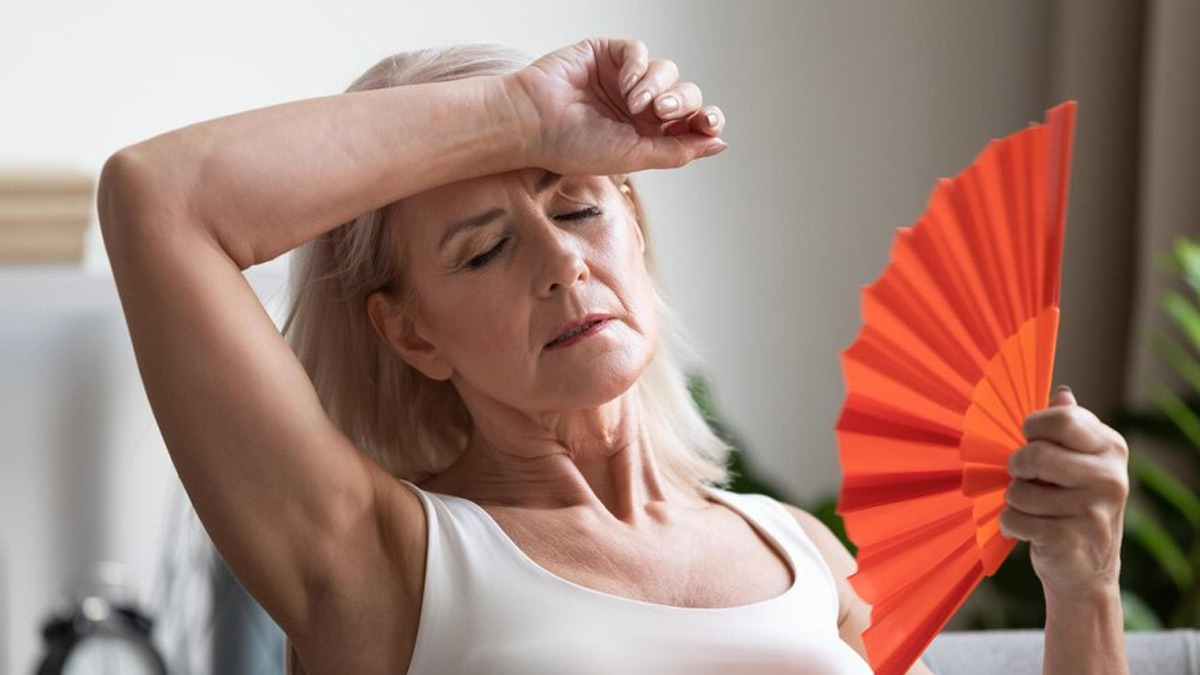
As women approach middle age, their bodies undergo a natural and gradual transition known as perimenopause, marking the onset of the end of their reproductive years. This transformative phase is characterised by hormonal fluctuations that can bring about a range of physical and emotional changes.
According to Johns Hopkins Medicine, perimenopause does not require any treatment. However, knowing the early symptoms of perimenopause can help you seek medical intervention to ease your menopause journey. To know more about these signs, the team of OnlyMyHealth spoke to Dr Manisha Mishra Goswami, Medical Adviser, Charak Pharma Pvt Ltd.
Hot flashes

One of the hallmark symptoms of perimenopause is hot flashes. “Hot flashes are experienced by almost 30-70% of the women in the perimenopausal state, which may last for a few seconds or up to four to five minutes,” said Dr Goswami. She informed me that women with a high Body Mass Index are more prone to hot flashes.
These sudden, intense feelings of warmth, often accompanied by sweating and a rapid heartbeat, can be both unpredictable and disruptive. While the exact cause of hot flashes during perimenopause is not fully understood, hormonal changes, particularly fluctuations in estrogen levels, are believed to play a crucial role.
Irregular Menstrual Cycles
“Fluctuations in periods are evidence of hormonal imbalance during this time,” said Dr Goswami, as she added, “Women experience shorter menstrual cycles with irregular bleeding patterns during perimenopause.”
Irregular periods can be unsettling for women who have been accustomed to a more predictable menstrual cycle throughout their reproductive years. These changes are a result of the ovaries shutting down.
Also Read: One In Four Women Experience Irregular Heartbeat After Menopause: Study
Sleep Disturbances

“Sleep issues are common in women in their forties and perimenopause can exacerbate this further,” said Dr Goswami. Hormonal fluctuations, along with other symptoms like night sweats, can contribute to insomnia. The impact of sleep disturbances on overall well-being and mental health makes addressing these issues an important aspect of managing perimenopausal symptoms.
Mood swings
Dr Goswami shared, “The female hormone oestrogen plays a crucial role in regulating mood elevating hormones like serotonin and dopamine. As oestrogen declines, these hormones are also affected.” She relayed that this phenomenon is accompanied by a gradual increase in the stress hormone cortisol, which further brings about anxiety, sadness, and irritability during perimenopause.
“Mood swings and depression affect those women more who have poor physical health and lifestyle,” recommended Dr Goswami.
Vaginal Dryness
“Low level of oestrogen causes vaginal walls to get thin and dry causing to painful intercourse,” said Dr Goswami. As estrogen levels decline, the vaginal tissues may become drier and less elastic. This also increases susceptibility to urinary tract infections. Addressing vaginal dryness is an important aspect of maintaining sexual health and overall well-being during perimenopause, recommended Goswami.
Also Read: Does Obesity Worsen The Symptoms Of Menopause? Expert Answers
Understanding the early symptoms of perimenopause is crucial for women approaching this life stage. While these symptoms can vary widely from person to person, recognising the signs allows for proactive management and support. Seeking guidance from healthcare professionals, maintaining a healthy lifestyle, and connecting with a supportive community can empower women to navigate perimenopause with resilience and grace.
Also watch this video
How we keep this article up to date:
We work with experts and keep a close eye on the latest in health and wellness. Whenever there is a new research or helpful information, we update our articles with accurate and useful advice.
Current Version